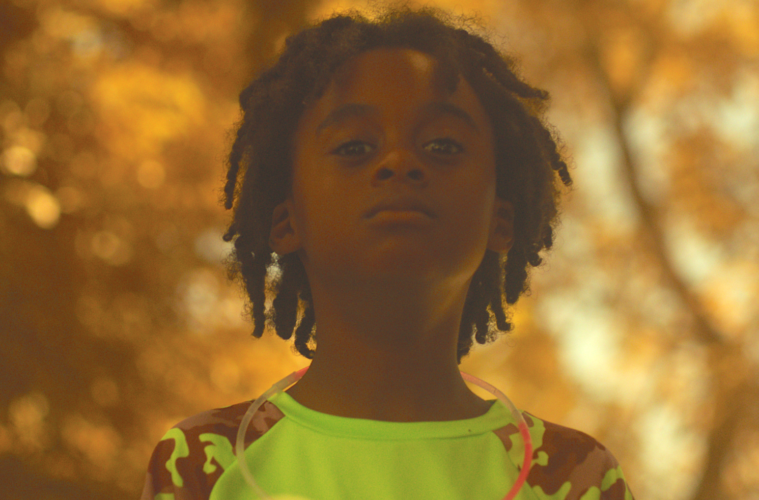In Residue, the superb debut film from writer-director Merawi Gerima, Jay (Obinna Nwachukwu), a budding filmmaker who has returned to his Washington D.C. neighborhood after many years in California visits his childhood friend Dion (Jamal Graham) in prison. Overwhelmed with sorrow, the men can barely speak at first, but when they begin to reminisce about the time Jay’s mother took them to the mountains — an epic journey for two Black kids from a tough neighborhood — their hearts open, and so does the film itself.
Suddenly, Jay and Dion are no longer in the prison, separated by bars, they’re in those mountain woods, talking and joking and remembering. The joy of memory has freed them, in their minds at least, from the harsh present, a visual leap on the part of Gerima that feels like a gift from filmmaker to character, and by extension, for those in the movie audience also in need of a bit of grace.
Jay’s mother is still in the family home but there’s a young white guy living upstairs and all around old houses are being torn down for fancier new ones, all of them occupied by self-consciously friendly young professionals who can be heard speaking of how the neighborhood has been “cleaned up.” On his first night, Jay acclimates himself to the familiar sounds of gunshots, sirens and a posturing cop but in the light of day there’s a new sound, one rarely heard when he was a boy: construction.
In an extraordinary debut performance, Nwachukwu, who, like his director, grew up in D.C, presents Jay as a young man besieged by conflicting emotions, all of them swirling too fast for him to pin down, much less process. Increasingly enraged at the casual erasure of his childhood world, Jay is also bewildered by the resentment his old friends feel toward him. He left the neighborhood for college and a better life which was supposed to be the dream. He thought he was coming “home.” But has he?
Filmed in two weeks on a shoestring budget, Residue is a film to meet halfway. It can take a minute to figure out the way in which Gerima uses grainy film stock and a gorgeously complex sound design to evoke Jay’s childhood, in scenes that don’t feel like flashbacks so much as mind glides. We all have those, especially when we go back home and who we were steps out of time to stand beside who we’ve become.
Advertising disclosure: We may receive compensation for some of the links in our stories. Thank you for supporting LA Weekly and our advertisers.

